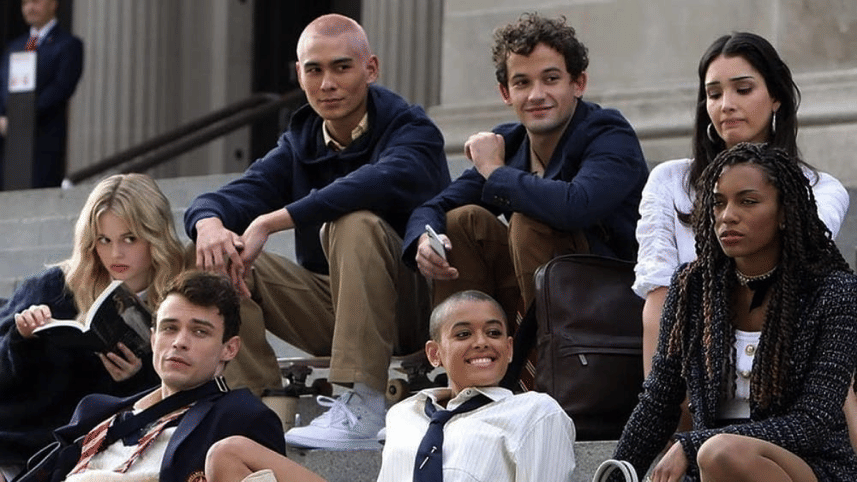You Know You Disappointed Me, HBO Max’s Gossip Girl

Spotted: The current ruling class at Constance Billard and St. Jude's lounging around on the steps of the Met at the Upper East Side.
Feeling that deja vu yet?
Creator Joshua Safran doesn't describe the 2021 version as a direct continuation of the original CW cult classic Gossip Girl (2007-2012) narrative, or as a reboot. The HBO Max show is set in the same universe as CW's was, reflecting the same dramatic tensions. But Safran acknowledged the ways in which CW's Gossip Girl, much like other 2000s shows, didn't age well over time.
Keeping that in mind, Safran sought to improve on the legacy built by Josh Schwartz and Stephanie Savage, as a screen-adaptation of Cecily von Ziegesar's best selling YA series. According to Safran, HBO Max's Gossip Girl is "...more like Downton Abbey in terms of sprawling cast and one event every episode."
Coming to the newly-introduced cast and their fictional counterparts, Whitney Peak and Jordan Alexander stole the show as half-sisters Zoya Lott and Julien Calloway. Both are complex characters in their own right, despite being set in the veins of former Constance Billard graduates Blair Waldorf and Serena van der Woodsen. While the latter was written largely as a stereotypical blonde it girl, the former was more of a snobby Manhattan socialite. Opposites who progressed through both the TV show and the books as frenemies.
Zoya and Julien on the other hand, aren't as simple to define, as both characters take turns in exuding Serena's effortless charm, and channeling Blair's Type A personality. The rest of the characters appear to be written in the same manner, taking on the mantles of the sleazy Chuck Bass, the "Lonely Boy", "Little J", the "Golden Boy", and the scheming trio of Georgina, Juliet, and Ivy.
Here's what the show gets wrong.
In their efforts to redeem the original show's seemingly tone-deaf worldbuilding, the 2021 Gossip Girl on HBO Max comes across as more of a reboot keen on pushing an agenda, as opposed to a fresh Gen-Z take on a cult classic. The central narrative hardly cuts through the surface-level exploration of real world issues, the most jarring example of which was Obie Bergmann's guilt about being rich presented through his participation in protest rallies, where his role is limited to that of a "donut bearer".
Then there's the portrayal of Max Wolfe, whose sexual fluidity seems to largely revolve around his spoiled "party animal" persona. As for the subtly-teased romantic relationship between Max, Aki, and Audrey, that plotline barely has much meaning to it, apart from serving as steamy content for the viewers.
It seems as though Safran's approach to being a woke storyteller begins and ends with "sounding good on paper". When a show's creator isn't committed to bringing a more diverse, Gen Z perspective on the screen, there's only so much the writers can do to keep the audience invested in the story. I fully acknowledge that the HBO Max version was conceived as a spiritual successor to the original CW show, but surely the show's creator doesn't intend for his show to continue being in the shadow of Schwartz and Savage's creation?
Final thoughts: Even though the face behind the eponymous Gossip Girl isn't a secret on the HBO Max show, the promise of scandalous drama amongst Manhattan's elites is enough to keep me going.
Let's call it a guilty pleasure for now.
And who am I? Well, that's a secret I'll never tell. XDXD, rasha.jameel@outlook.com
Read more about movies, music, anime and pop culture on SHOUT.



 For all latest news, follow The Daily Star's Google News channel.
For all latest news, follow The Daily Star's Google News channel.
Comments